Although the right to strike was not regulated until the 20th century, work stoppages were carried out for various reasons since ancient times, the first documented case being that of the workers of Set Maat (today Deir el-Medina, Egypt) during the reign of of Ramses III. We know this thanks to the so-called Strike Papyrus, which is preserved in Turin and is countersigned by several ostraca scattered throughout various museums around the world. But that was an improvised move. To find the antecedents of the strikes as institutional figures we would surely have to look to the Rome of the republican period, to the secessio plebis .
In the Egyptian case we speak of the year 1166 BC. It was a protest sent to the pharaoh about the working conditions, with the workers poorly fed and dressed, as well as a complaint of diversion of funds. In the Roman reference the date is a bit closer, from the 5th century BC, but the secessio plebis It fits a little better the concept of strike from a legal point of view, although it was not exactly such either.
It was a class tool to defend against abuse. Something closer to a plan during which the lower classes, who were the beneficiaries of that right, left the city, leaving it completely inoperative as they constituted the majority of the productive force. Thus, the workshops stopped, the stores closed and, consequently, the trade ceased to function, causing a shortage of supplies that directly harmed the highest estate.
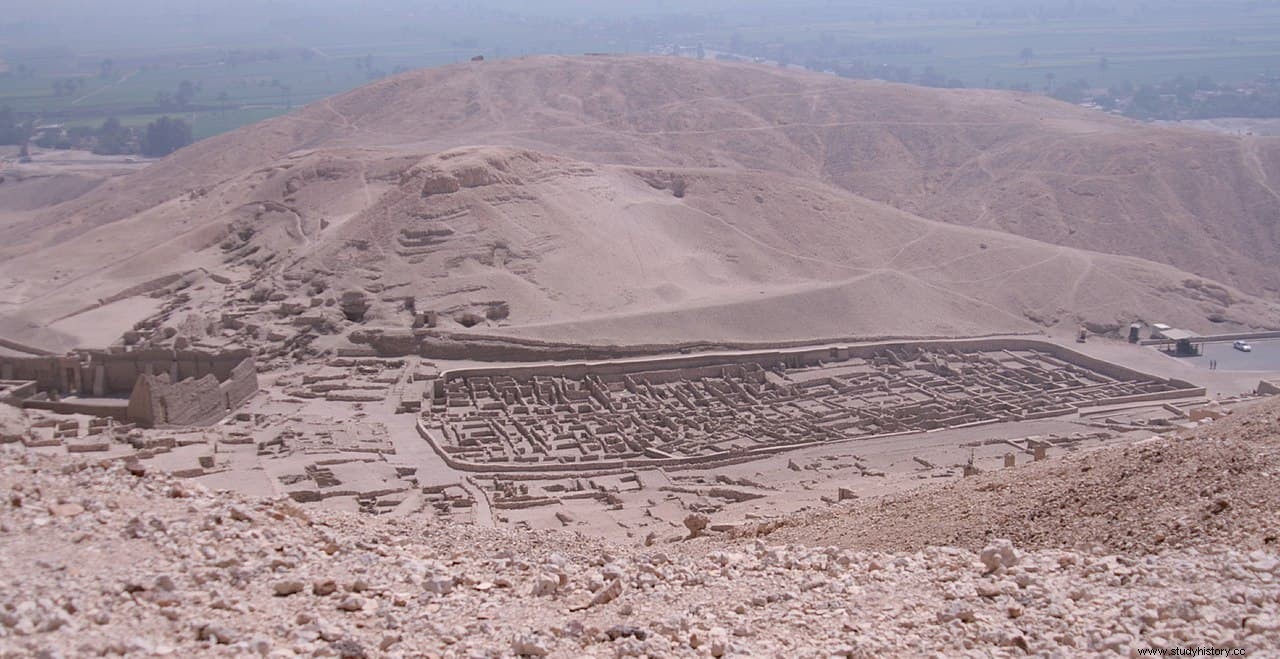
We speak, of course, of plebeians and patricians respectively, the two social levels of the Roman Republic together with slaves and foreigners lacking citizenship. The first, the ordo plebeius (order plebeian, plebe), were those who did not have gens; that is, those who could not prove a lineage linked to the founding of Rome. Basically farmers and artisans, they had to work in order to eat; In this they were not too different from the patricians, who, except for the richest, who lived on income, also worked. But there were other aspects of his estate that did mark distances.
The patricians descended from the illustrious families that formed the original thirty founding curiae of Rome (in fact, patrician comes from pater , father), that is why they held all the rights of government and representation. They monopolized the Senate and provided the two mandatory annual consuls (which replaced the monarchical power), just as they monopolized access to the priesthood and, in short, all the magistracies. Even marriage between members of both classes was prohibited.
Over time, things changed a bit and the cursus honorum was opened. for the plebeians, although initially restricted to certain positions (questure, tribune of the plebs) until the total opening. But that would be later and as a result of the conflict. Because, as expected, there was a situation of discontent that could explode as soon as an economic crisis arrived in the absence of the moderating power of yesteryear, the monarchist. And it arrived in the year 494 BC
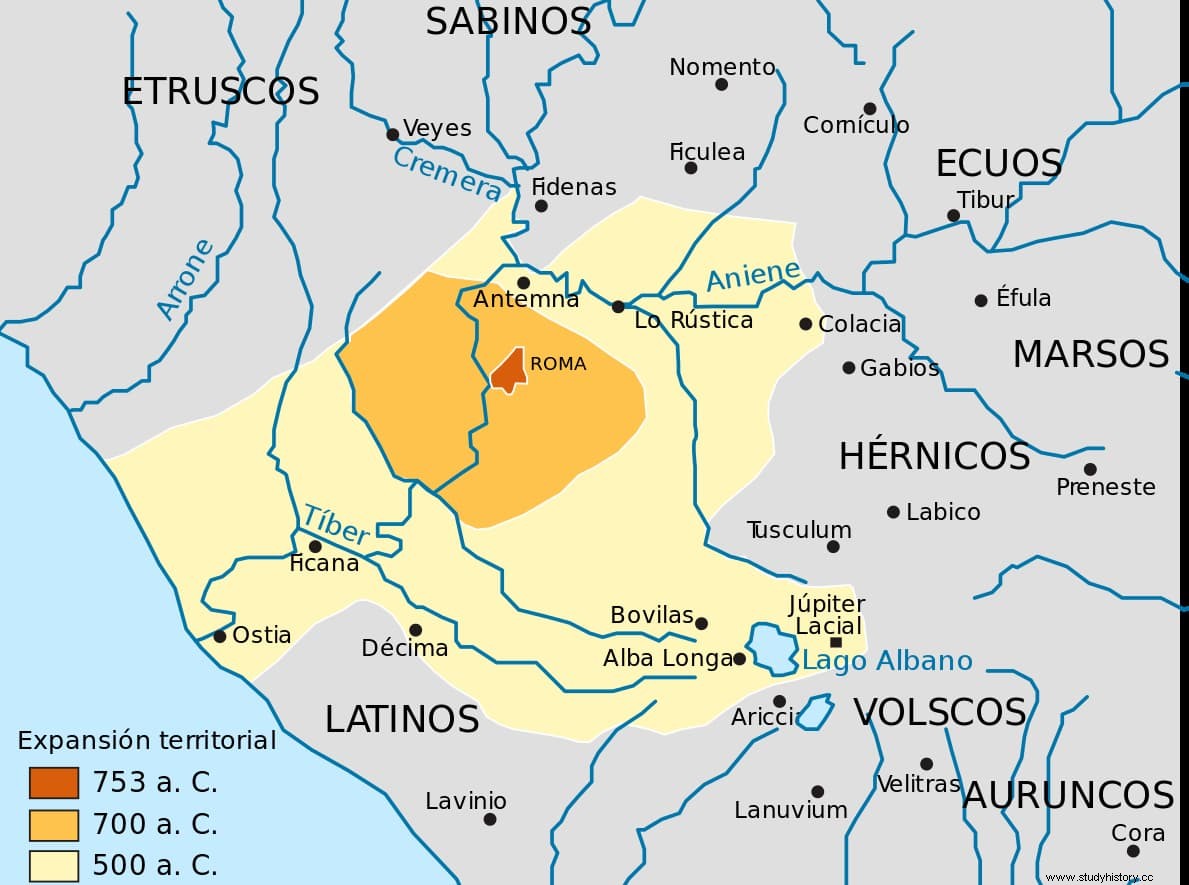
The constant wars with the neighboring towns (Rome was not yet as powerful as it would be), which forced the fields to be abandoned for the duration of the campaigns, together with a succession of bad harvests, produced the general impoverishment of the ordo plebeius , forcing many of its bankrupt members to apply for loans that could not always be repaid. In such cases, the fate of the defaulter was to end up paying with his freedom, converted into a slave, a double humiliation for a Roman.
Despite the threat posed by the Sabines, the commoners refused to join the army unless the law that forced them into poverty or slavery was changed. The patricians accepted the compromise but once the danger of invasion was over they did not keep their promise; the Senate refused any reform, provoking the indignation of the others. The definitive spark was lit, according to Tito Livio, in the Forum, in a spontaneous outburst of rage.
An emaciated army veteran told the crowd how while he was fighting the Sabines, they ransacked his farm, stealing everything he owned. He was forced to ask for a loan due to a usurious interest that prevented him from repaying it, having to hand over his grandfather's farm as payment and still it was not enough, for which he suffered imprisonment and whipping. The people, enraged, began to bellow before the consuls and they asked the Senate to take appeasing measures. Two senators, Apio and Servilio, clashed:one demanding to repress the protests, the other proposing to make some concession.
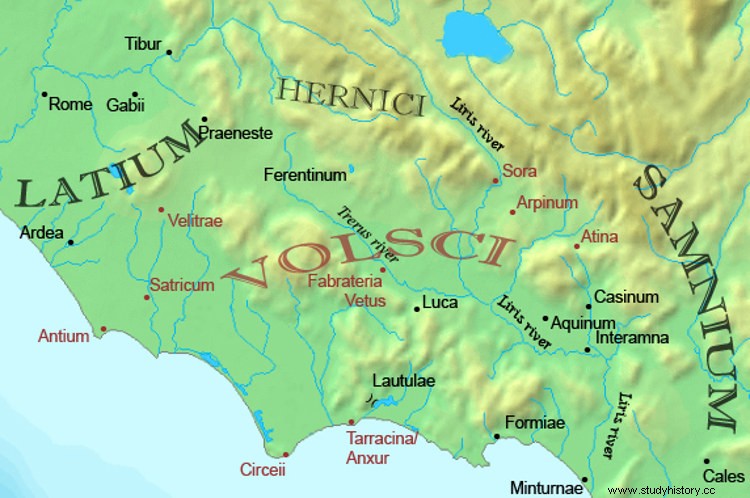
News then arrived that the Aequi and the Volsci, Italic peoples who inhabited the northeast and south of Lazio, and who were considered ancestral enemies, had entered Lazio. Servilius promised immunity for Roman citizens and guaranteed the safety of their property while they were in ranks, freeing those convicted of debt. This calmed things down, the recruitment proceeded and the Volscians were defeated, as were the Auruncos, who had also gone to war.
But, as we said, when we returned, all those promises were diluted. Servilio was reviled by both sides and the arrests of debtors began again. One of them, carried out in the middle of the forum, stirred up those present, who released the accused by force. It was no wonder that when it became known that the Sabines were also trying to fish in a troubled river, no one signed up. Celery sent the lictors to arrest the leader of that revolt but they were unsuccessful and it was time to elect new consuls.
The situation was very tense, with conspiratorial meetings that the incoming consuls did not want to prevent so as not to aggravate those that the Senate demanded to put an end to. In the end it was decided to proceed to compulsory recruitment; it was a failure because no one responded to his name being read and when the lictors tried to arrest someone the crowd prevented them. There was no lack of senators who asked for a dictatorship and the one chosen for it was Manio Valerio Máximo, brother of Publio Valerio, a prestigious consul who had instituted the popular assembly after the overthrow of the monarchy for which he earned the cognomen of Publicola (friend of the people).
The dictator managed to convince the people to defend Rome from the attack of the Sabines, Volscians and Aequi, forming ten legions that won a total victory. But when they returned, the internal problem was reproduced:despite the mediation of Manio Valerio, the senators continued to refuse to grant anything to the plebs and, when the dictator resigned, they demanded that the army leave the city. In this context, the character that was going to change everything emerged:Lucio Sicinio Veluto, the plebeian who had the idea of the secessio plebis .
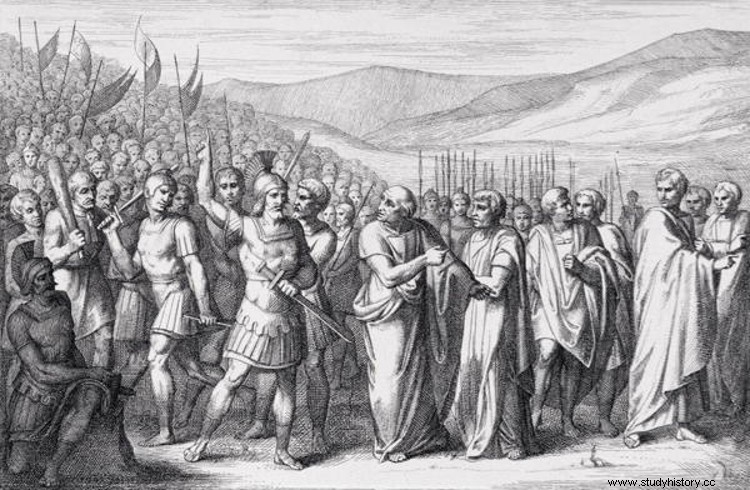
Veluto proposed that all of his class accompany the soldiers out of Rome, which was carried out en masse. The city emptied, as the patricians were a minority, while the bulk of the Romans established a camp with a palisade and a moat on the Monte Sacro, a sacred mountain located on the other side of the Anio river, a little less than five kilometers away. As we said, a real problem for Rome, which was not only left unprotected but also paralyzed economically and with the fear that the plebeians would found their own city.
The Senate had no choice but to negotiate, sending the former consul Agrippa Menenio Lanato as a delegate because, says Tito Livio, his family was of plebeian origin. Menenius achieved an agreement between both parties whose main novelty, apart from the forgiveness of part of the debts, was the creation of a new judiciary, that of the tribunes of the plebs, elected officials from among the members of the ordo plebeius and whose mission was to defend the interests of the latter before the patrician consuls. There would be two (who in turn would elect another three) and they would be inviolable, equivalent to the later praetors.
The institution of a concilium plebis was also accepted (assembly of commoners), which had begun to function on the Monte Sacro together with two aediles (predecessors of the future quaestors). Not everything was solved because those problems had lasted a couple of years and during that time the fields were neglected, so in 492 B.C. a famine fell on Latium that forced the importation of grain from Etruria and Sicily, in addition to bringing new discussions. Some were solved by resorting again to secessio plebis; in fact, four more were recorded, the first of them in 449 BC, due to the way of interpreting the laws.
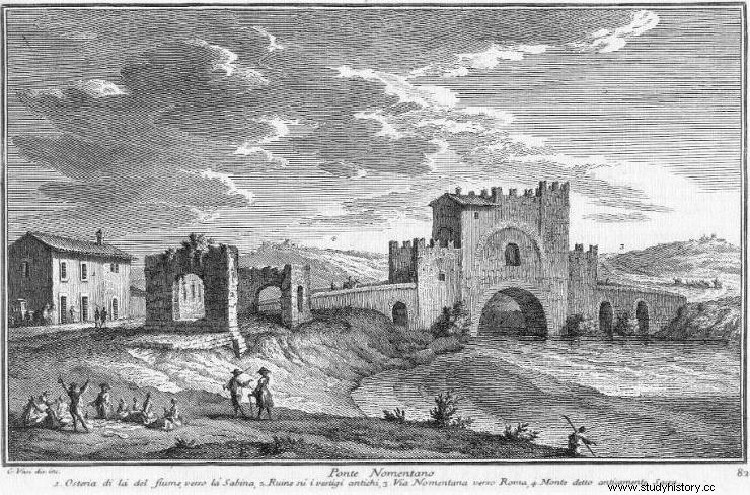
In the year 450 another magistracy had been established, the decemvirate, made up of ten magistrates who superimposed their authority on that of the consuls. The legal tradition until then was oral, which meant that the decemvirs interpreted the law subjectively and, in conflicts between patricians and plebeians, they used to rule in favor of the former, after all, the estate to which they belonged. His capricious performances, which included the execution of a former tribune of the plebs, ended up unnerving people.
Street riots were reproduced and the tribunate was suspended so, as in the past, angry people resorted to the secessio :the plebeians left Rome and joined the legions encamped on the Aventine, all marching to the Sacred Hill. The Senate reprimanded the decemvirs and sent two representatives to negotiate, with success:the plebeians would return but in exchange their tribunes and the right of appeal had to be reinstated, in addition to changing the system of interpreting the law.
Thus, the oral tradition was left in favor of the written one. It was something that had been planned before, when the decemvirate was instituted, and that now materialized in the Law of the XII Tables (so called because it was embodied in wooden tables, later in bronze), a source of Roman Law although inspired by the Solon's legislation (in fact, a commission was sent to Greece to study it). The two new consuls, Lucio Valerio and Marco Horacio, who were the ones who negotiated between both parties, ordered their placement in the Forum, in public view.
The objective of that legislative corpus, completed with the so-called Leges Valeria Horatiae , was the legal equality of all Roman citizens, whether they were patricians or plebeians, although the Senate retained the right of veto. Of course, it was a long and complex process in which steps were taken forward but also backwards (the patricians even assassinated one of their own whom they considered too timely, Espurio Casio Vecelino). And when the latter happened, the plebs had the secessio .
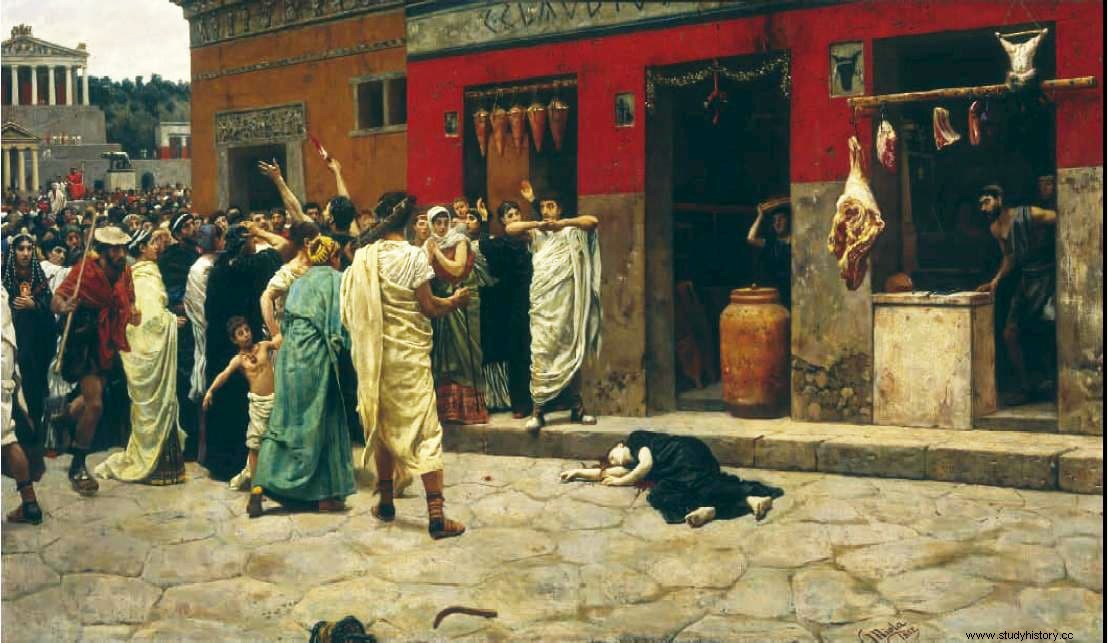
There were minor ones in the years 445 and 342 BC, as a result of which the ordo plebeius obtained more concessions:entry into the consular military tribunal, admission of marriage with members of the patriciate, access to the quaesture and even the possibility that a commoner be appointed consul and/or pontiff. Of course, always with nuances and limitations.
The last secessio plebis proper took place in 267 B.C. when the plebeians marched to the Janicolo (a hill) due to senatorial reluctance to accept the decisions made by the plebis scitum (a legislative assembly) and, more specifically, the Lex Hortensia (name derived from its promoter, the plebeian dictator Quinto Hortensio). This was an initiative that forced the centuriate elections (the assemblies) to vote for the celebration of plebiscites, as well as to abide by their results by all the people.
Although plebiscites were not new, what the plebeians achieved via secessio was that its results had the force of law and thus be reflected, also forcing the patricians and regardless of the opinion of the Senate (although they recommended their consultation). The fact is that plebeians and patricians were equal in rights, both civil and political, and the former obtained full access to all magistracies, including the Senate. Also, the agrarian problem lost importance thanks to the extensions of land gained in the conquest of Italy and the other major issue, that of debtors, was resolved by eliminating the possibility of their enslavement. In this way that long conflict between social classes came to an end.
